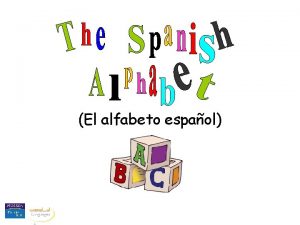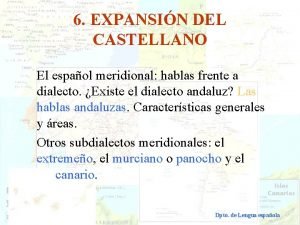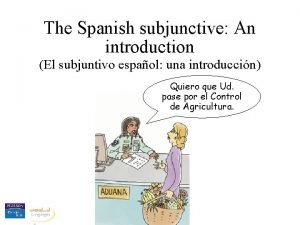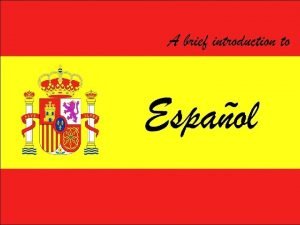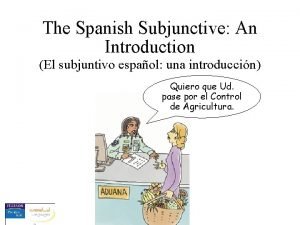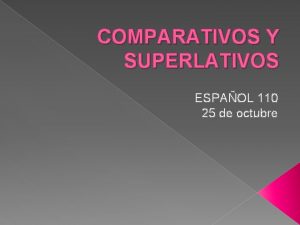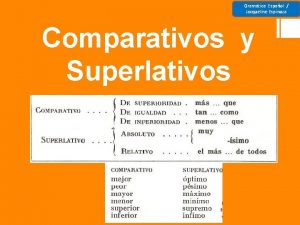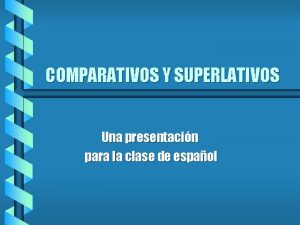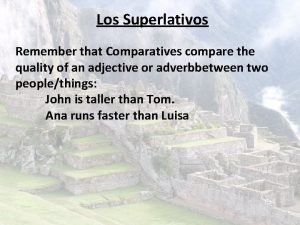Superlativos Espaol 2U 5 L 1 Superlativos To










- Slides: 10

Superlativos Español 2—U 5 L 1

Superlativos: To emphasize an adjective, replace the ending with -ísimo(a)(os)(as) _________. Should match in number & gender with the word it is describing If the adjective ends in a vowel, drop it before adding the ending.

Ejemplos: Write a sentence using the superlative form of the adjective. Potatoes (sabroso) Las patatas son sabrosísimas. Strawberry (dulce) La fresa es dulcísima. Lemon (agrio) El limón es agrísimo. Peas (delicioso) Los guisantes son deliciosísimos.

C, G, Z Rule: Words with c before the ending change to _____ qu Words with g before the ending change to _____ gu Words with z before the ending change to ______ c

Ejemplos: Write a sentence using the superlative form of the adjective. Green beans (largo) Las habichuelas son larguísimas. Peach (fresco) El durazno es fresquísimo. Las chicas (feliz) Las chicas están felicísimas.

Ejemplos: Rewrite the underlined phrases with a superlative. riquísima La comida está muy rica. ____________ larguísimo El viaje en coche fue muy largo. ___________ felicísimo(a) Yo estoy muy feliz. ____________ Las verduras y las frutas están muy frescas. _______ fresquísimas picantísima La salsa es muy picante. ____________

Participios Español 3

Past Participles as Adjectives Past participles are frequently used with the verb _________ to describe objects. They show the result of an estar action. Here’s How: Drop “ar”, “er”, or “ir” 1. ___________________________ 2. ___________________________ Add “ado” for AR verbs, or “ido” for ER/IR verbs 3. Change ___________________________ ending to match (agree) with object.

Ejemplos 1. Mezclar Mezclado—mixed 2. comer Comido—eaten 3. hervir Hervido—boiled frito **NOTA**: The particple of “freír” is __________.

Más ejemplos The vegetables are mixed. Las verduras están mezcladas. The peas are boiled. Los guisantes están hervidos. The eggs are beaten. Los huevos están batidos. The dishes are washed. Los platos están lavados. The grean beans are fried. Las habichuelas están fritas.
